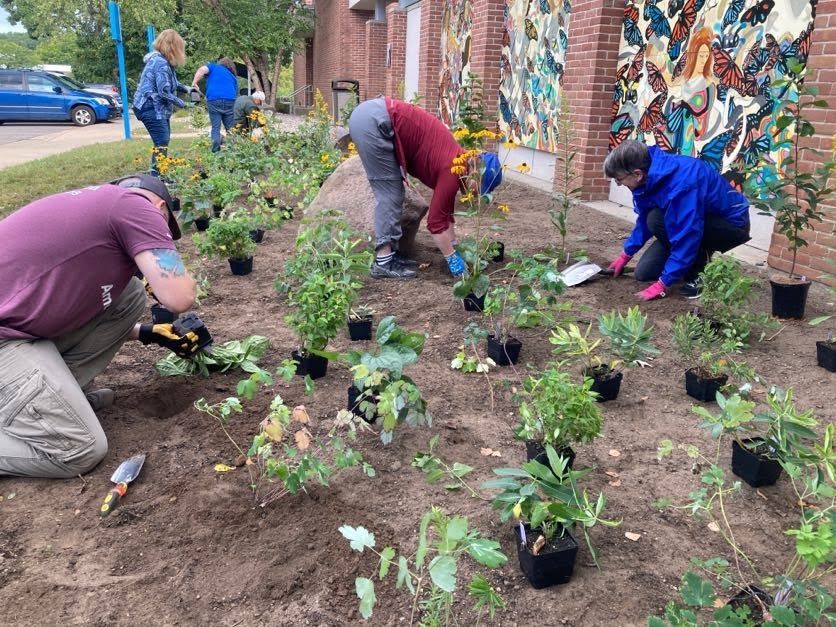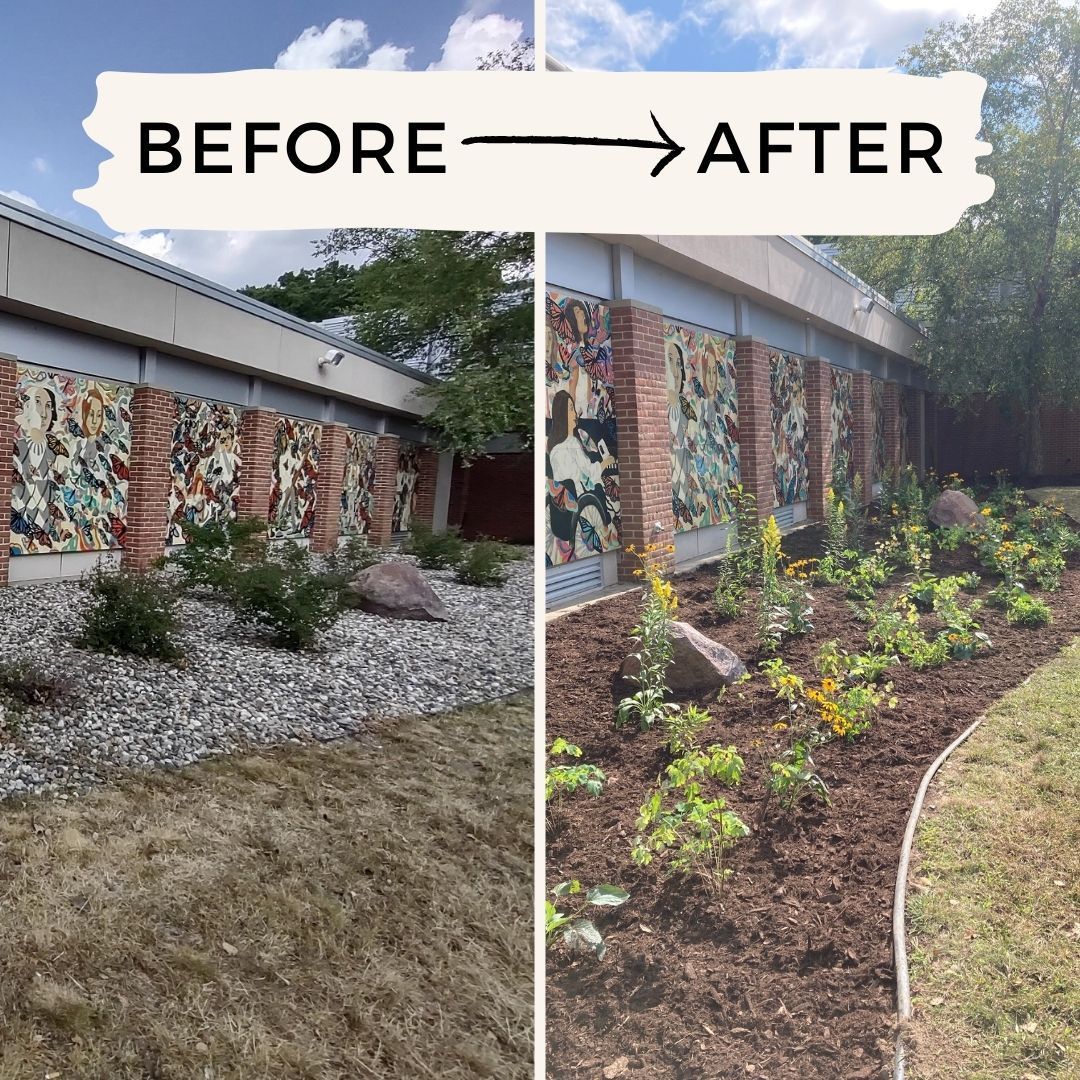On the Ground: Volunteers Install a Native Pollinator Garden on Kellogg Community College Campus

Volunteers planted a variety of native pollinator-friendly flowering plants and shrubs outside the Davidson Building on campus.
On Wednesday, September 12, a group of students, faculty, staff, and alumni volunteers gathered outside the Davidson Building on Kellogg Community College’s (KCC) Battle Creek campus to join On the Ground in creating important pollinator habitat. After just a couple hours of work, volunteers planted and mulched an 80-foot garden bed just outside the entrance to the campus building, creating habitat for pollinators like songbirds, butterflies, and bumble bees.
Some of the native species that were planted include bee balm, black-eyed Susan, columbine, milkweed, goldenrod, spicebush, and nannyberry. Volunteers also spread 20 cubic yards of natural hardwood mulch throughout the garden!

Before this On the Ground project, the garden bed shown above was filled with rock and non-native greenery. Now, over 120 new native plants will provide pollinators with habitat for years to come.
The partnership between MUCC and KCC was sparked after each organization (along with Battle Creek’s Willard Library) received generous donations from the estate of late KCC professor and conservationist, Dean Barnum. At this event, we celebrated the life and legacy of Dean and took this opportunity to improve habitat while beautifying this spot on campus.
Thank you to all of the wonderful volunteers who spent the morning with us improving pollinator habitat on campus! Our next On the Ground event will take place on Saturday, September 23 in the Pigeon River Country State Forest in Vanderbilt, MI. For more details, please visit mucc.org/on-the-ground/.
Recent Posts



